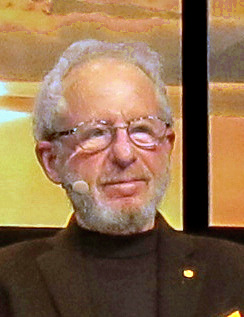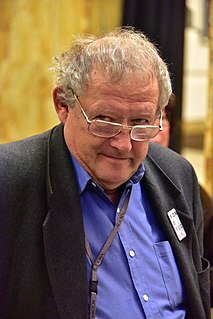A Quote by W. Averell Harriman
Roosevelt was determined to stop Stalin from taking over Eastern Europe. He thought they finally had an agreement on Poland. Before Roosevelt died, he realized that Stalin had broken his agreement.
Related Quotes
Franklin Roosevelt is one of the great leaders because he does get along with other people. He makes this huge effort. He's a very charming man. He tries to bring Joseph Stalin and Winston Churchill into this tripartite agreement to run the world. And he really was close. If he hadn't died in April of '45, the whole history would be different.
[Maxim] Litvinov signed his letter not in private capacity but as representative of the state, just as did President [Franklin] Roosevelt. Their agreement represents an agrement between two states. Signing this agreement both Litvinov and President Roosevelt as the
representatives of two states have in mind the activities of the agents of those states who should not and will not interfere in each other's internal affairs.
Mehmet Ertegun died in 1944. President Roosevelt sent his body back to Turkey on the U.S.S. Missouri. Mehmet Ertegun and President Roosevelt had had a cordial relationship, and, indeed, Mehmet Ertegun may have helped insure that Turkey did not ally itself with Germany, as it had in the First World War.
As a Polish American, I grew up hearing the phrase 'nothing about us without us.' To Eastern Europeans, the vow is a painful reminder of how Joseph Stalin, Winston Churchill and Franklin D. Roosevelt carved up their small countries after World War II, placing them, against their will, under Soviet domination.
The crisis [the Great Depression] discovered a great man in Franklin Roosevelt...None too soon he has carried America forward to the second stage of democratic realization. His New Deal involves such collective controls of the national business that it would be absurd to call it anything but socialism, were it not for a prejudice lingering on from the old individualist days against that word...Both Roosevelt and Stalin were attempting to produce a huge, modern, scientifically organized, socialist state, the one out of a warning crisis and the other out of a chaos.
Today we reject the notion of equality between a regime that belongs to the democratic world - even if it is conservative and disagreeable - and a totalitarian dictatorship, whether its colors are black, red, or green. This is why we will never again say that Chamberlain is no better than Hitler, Roosevelt no better than Stalin, and Nixon no better than Mao Zedong, even if we do condemn Roosevelt for Yalta, Chamberlain for Munich, and Nixon for Watergate.






























